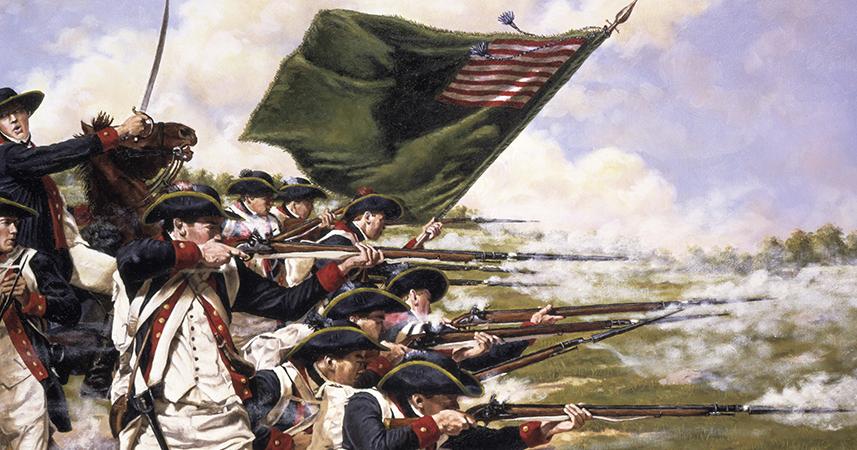
Krakatoa explodes
The most powerful volcanic eruption in recorded history occurs on Krakatoa (also called Krakatau), a small, uninhabited volcanic island located west of Sumatra in Indonesia, on August 27, 1883. Heard 3,000 miles away, the explosions threw five cubic miles of earth 50 miles into the air, created 120-foot tsunamis and killed 36,000 people.
Krakatoa exhibited its first stirrings in more than 200 years on May 20, 1883. A German warship passing by reported a seven-mile high cloud of ash and dust over Krakatoa. For the next two months, similar explosions would be witnessed by commercial liners and natives on nearby Java and Sumatra. With little to no idea of the impending catastrophe, the local inhabitants greeted the volcanic activity with festive excitement.
On August 26 and August 27, excitement turned to horror as Krakatoa literally blew itself apart, setting off a chain of natural disasters that would be felt around the world for years to come. An enormous blast on the afternoon of August 26 destroyed the northern two-thirds of the island; as it plunged into the Sunda Strait, between the Java Sea and Indian Ocean, the gushing mountain generated a series of pyroclastic flows (fast-moving fluid bodies of molten gas, ash and rock) and monstrous tsunamis that swept over nearby coastlines. Four more eruptions beginning at 5:30 a.m. the following day proved cataclysmic. The explosions could be heard as far as 3,000 miles away, and ash was propelled to a height of 50 miles. Fine dust from the explosion drifted around the earth, causing spectacular sunsets and forming an atmospheric veil that lowered temperatures worldwide by several degrees.
Of the estimated 36,000 deaths resulting from the eruption, at least 31,000 were caused by the tsunamis created when much of the island fell into the water. The greatest of these waves measured 120 feet high, and washed over nearby islands, stripping away vegetation and carrying people out to sea. Another 4,500 people were scorched to death from the pyroclastic flows that rolled over the sea, stretching as far as 40 miles, according to some sources.
In addition to Krakatoa, which is still active, Indonesia has another 130 active volcanoes, the most of any country in the world.
ART, LITERATURE, AND FILM HISTORY
1955
“The Guinness Book of Records” debuts
On August 27, 1955, the first edition of “The Guinness Book of Records” is published in Great Britain; it quickly proves to be a hit. Now known as the “Guinness World Records” book, the annual publication features a wide range of feats related to humans and animals.

CRIME
2007
NFL star Michael Vick pleads guilty in dogfighting case
On August 27, 2007, Michael Vick, a star quarterback for the Atlanta Falcons, formally pleads guilty before a Richmond, Virginia, judge to a federal felony charge related to running a dogfighting ring. That December, the 27-year-old Vick, once the highest-paid player in the NFL.

CRIME
1979
Lord Mountbatten killed by IRA
On August 27, 1979, Lord Louis Mountbatten is killed when Irish Republican Army (IRA) terrorists detonate a 50-pound bomb hidden on his fishing vessel Shadow V. Mountbatten, a war hero, elder statesman, and second cousin of Queen Elizabeth II, was spending the day with his family.

AMERICAN REVOLUTION
1776
British forces defeat Patriots in the Battle of Brooklyn
During the American Revolution, British forces under General William Howe defeat Patriot forces under General George Washington at the Battle of Brooklyn (also known as the Battle of Long Island) in New York. On August 22, Howe’s large army landed on Long Island.

WORLD WAR I
1916
Romania enters World War I
On August 27, 1916, after Romania declares war on Austria-Hungary, formally entering World War I, Romanian troops cross the border of the Austro-Hungarian Empire into the much-contested province of Transylvania.

U.S. PRESIDENTS
1908
Lyndon B. Johnson is born
On August 27, 1908, future President Lyndon Baines Johnson is born on a farm near Stonewall, Texas. The brash, outspoken Johnson grew up in an impoverished rural area and worked his way through a teachers’ training college before entering politics.

WESTWARD EXPANSION
1875
Tycoon William Ralston drowns
Hours after being asked to resign as president of the Bank of California, the powerful western capitalist William Ralston is found drowned in San Francisco Bay. One of the first men to build a major financial empire in the Far West, Ralston was born in Ohio in 1826.

ART, LITERATURE, AND FILM HISTORY
1967
Beatles manager Brian Epstein dies
On August 27, 1967, Brian Epstein, manager of the Beatles, was found dead of an accidental drug overdose in his Sussex, England, home. The following day, the headline in the London Daily Mirror read “EPSTEIN (The Beatle-Making Prince of Pop) DIES AT 32.

COLD WAR
1952
"Red Scare" dominates American politics
As the presidential election of 1952 begins to heat up, so do accusations and counter accusations concerning communism in America. The “Red Scare”—the widespread belief that international communism was operating in the United States—came to dominate much of the debate between Democrats and Republicans in 1952.

Comments
Post a Comment